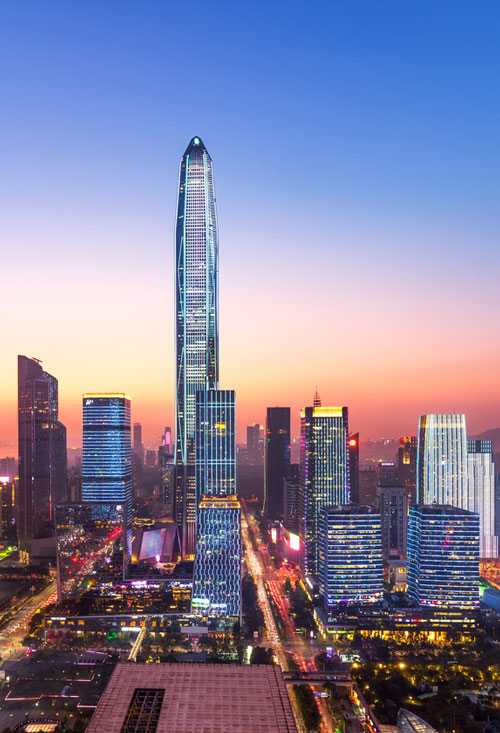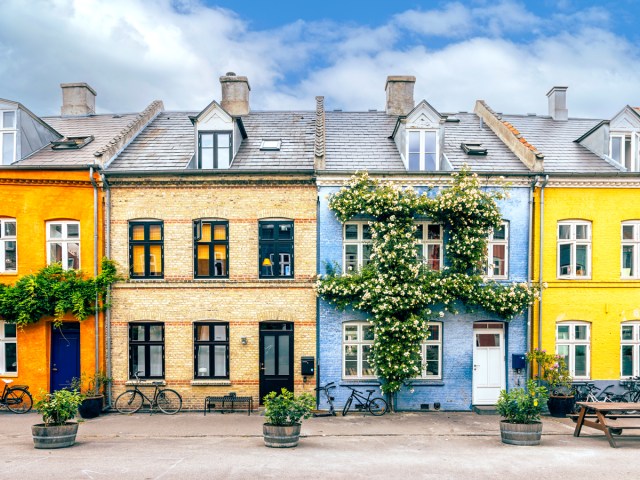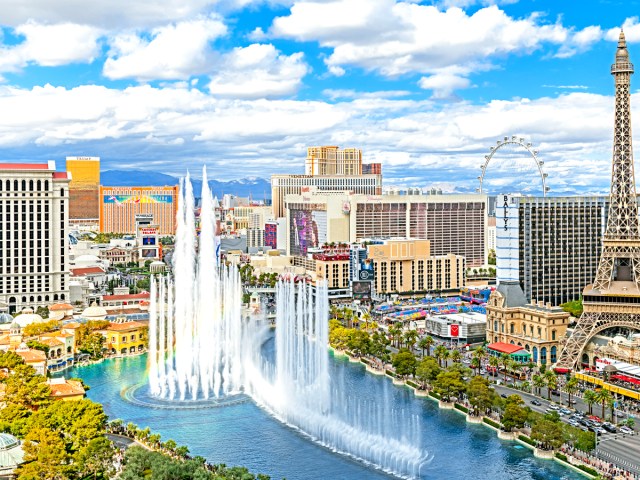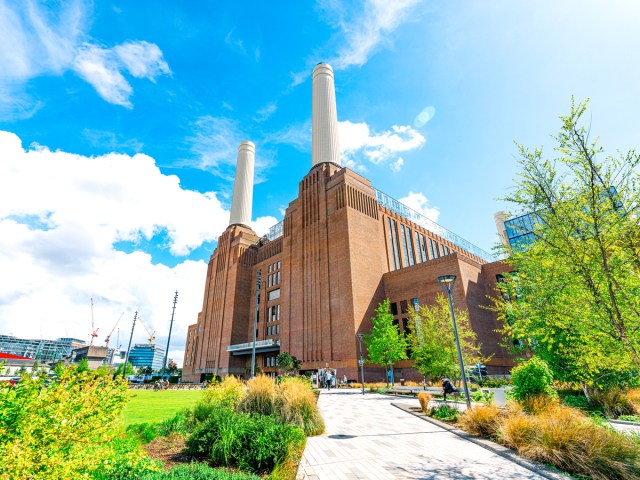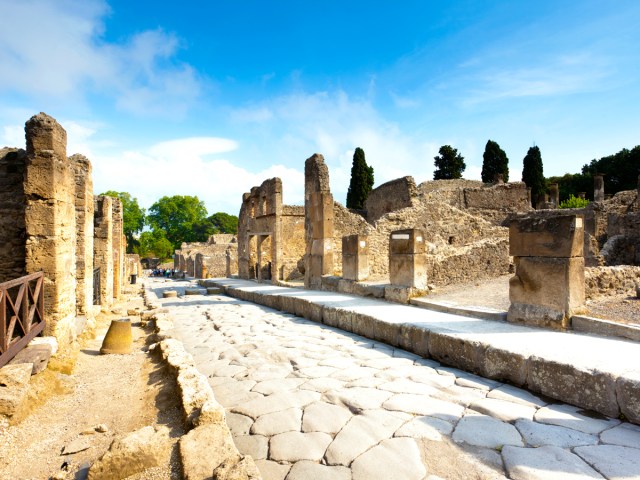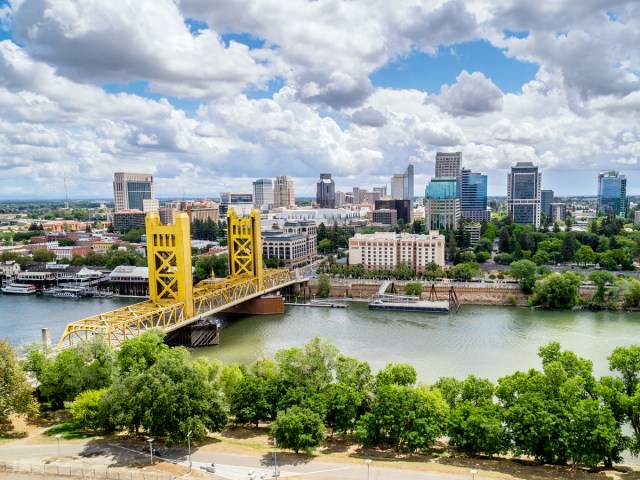When it opened in 1930, Manhattan’s Chrysler Building became the first skyscraper to exceed 1,000 feet in height — surpassing the Eiffel Tower as the world’s tallest building, only to be bested by the Empire State Building in less than a year. Flash forward to 80 years year, when a certain skyscraper took the world’s-tallest crown, falling just 300 feet short of 3,000 (!) feet. Here, survey the 10 (currently) tallest buildings on the planet — incredible feats of engineering and stunning symbols of wealth and urban elegance.
10. Taipei 101 – Taipei, Taiwan
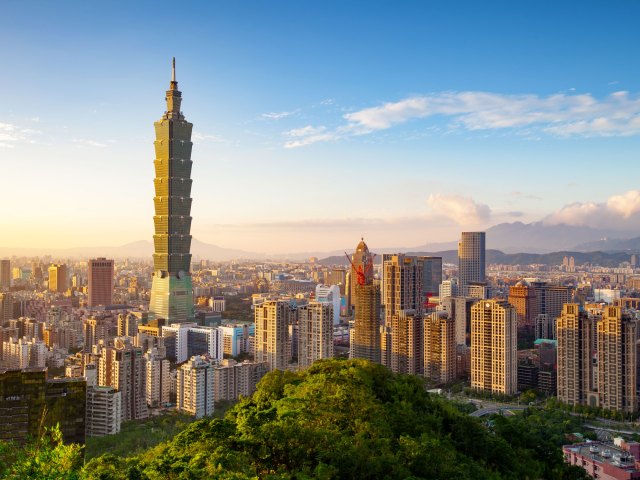
Characterized by its distinctive pagoda-inspired shape, Taipei 101 rises to an impressive 1,667 feet above the streets of Taiwan’s capital. Symbolism played an important role in the design and naming of the emblematic landmark, situated in the Xinyi Special District commercial hub. The name is a reference to the 101 floors — the number 100 symbolizes perfection, and the number 1 represents the ability to break the boundaries of perfection. The skyscraper is also recognized for its innovative energy-efficient features, including the ventilation equipment and water storage found in its eight stacked modules. The building’s facade is made from green-tinted glass that helps to repel solar heat. Tourist attractions at Taipei 101 include a food court, a multi-level shopping mall, and a panoramic observatory.
9. CITIC Tower – Beijing, China
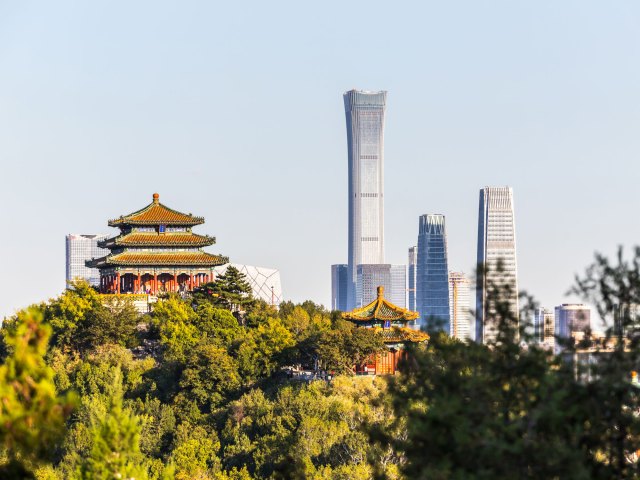
The 1,731-foot-tall CITIC Tower (also known as China Zun) is the tallest building in Beijing’s sprawling skyline. It soars above the modern Central Business District of China’s capital city with a curving shape inspired by a zun, a ceremonial wine vessel that traces back to the Bronze Age in China. Typical of a zun, the tower has a wide base that tapers inward before broadening at the summit. This design and infrastructure also helps the building to withstand earthquakes in the country’s most active seismic zone. Of the 109 above-ground and eight below-ground floors, 108 are occupied by the China International Trust Investment Corporation (CITIC Group) and other businesses.
8. Tianjin CTF Finance Centre – Tianjin, China
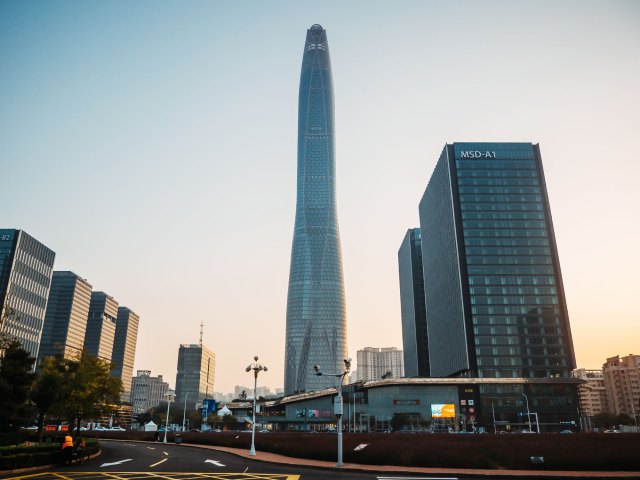
Tianjin CTF Finance Center is a futuristic-looking skyscraper owned by the Hong Kong-based conglomerate Chow Tai Fook Enterprises. It reaches a lofty height of 1,739 feet and has a sleek and softly curving glass exterior. This integrates harmoniously with eight sloping mega-columns that enhance the building’s response to seismic movements. Tianjin CTF Finance Centre is a mixed-use building: Spread across its 97 floors are retail outlets, office spaces, and several hundred hotel rooms and serviced apartments.
7. Guangzhou CTF Finance Centre – Guangzhou, China
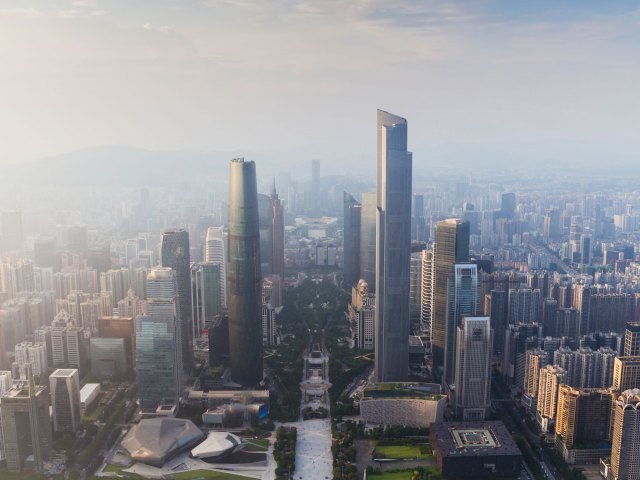
Guangzhou CTF Finance Center is another colossal skyscraper owned by Chow Tai Fook Enterprises. Like its Tianjin counterpart, it is exactly 1,739 feet tall. The building has a series of self-cleaning and corrosion-resistant terracotta mullions that adorn the facade — the use of terracotta is symbolic of the material’s importance in Chinese history. The podium and lower floors are home to the Guangzhou K11 high-end shopping mall, while offices, apartments, and a luxury hotel occupy the remaining floors. Access to the hotel is via one of the world’s fastest elevator systems, which travels 95 floors in a mere 42 seconds.
6. One World Trade Center – New York, New York
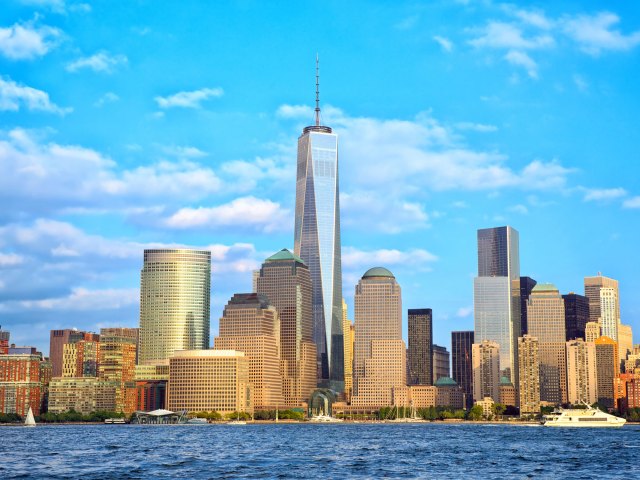
One World Trade Center overlooks the Hudson River and spectacular Manhattan skyline with a symbolic height of 1,776 feet. The 104-floor skyscraper stands on the site of the rebuilt World Trade Center complex and has the same name as the North Tower, which was one of the Twin Towers destroyed on 9/11. When it was completed in 2014, One World Trade Center became the tallest building in the United States, overtaking the throne from Chicago’s Willis Tower (formerly the Sears Tower). Its prismatic glass facade glimmers like a kaleidoscope and changes throughout the day with the moments of the sun. Over half of the skyscraper is leased to businesses, including the media company Condé Nast. Visitors can enjoy 360-degree city views, multimedia exhibits, and restaurants at the One World Observatory.
5. Lotte World Tower – Seoul, South Korea
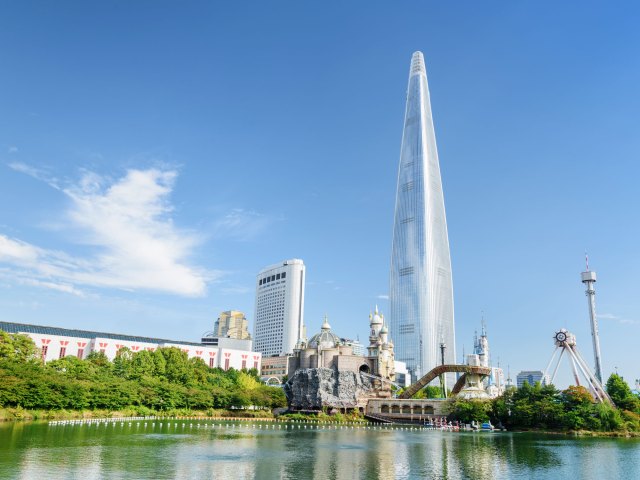
The 1,824-foot-tall Lotte World Tower is the tallest building in South Korea. It’s packed with retail and entertainment attractions from the lobby all the way up to the 123rd floor. Self-described as a structure where “globalism, Korea’s traditional beauty, human technology, cutting-edge and nature exists in harmony, ”the skyscraper is home to the Lotte Museum of Art, an aquarium, a luxury shopping mall, and Korea’s biggest duty-free store. At the top is Seoul Sky, an observatory and glass-floored skywalk accessed via the world’s first double-decker elevators.
4. Ping An Finance Center – Shenzhen, China
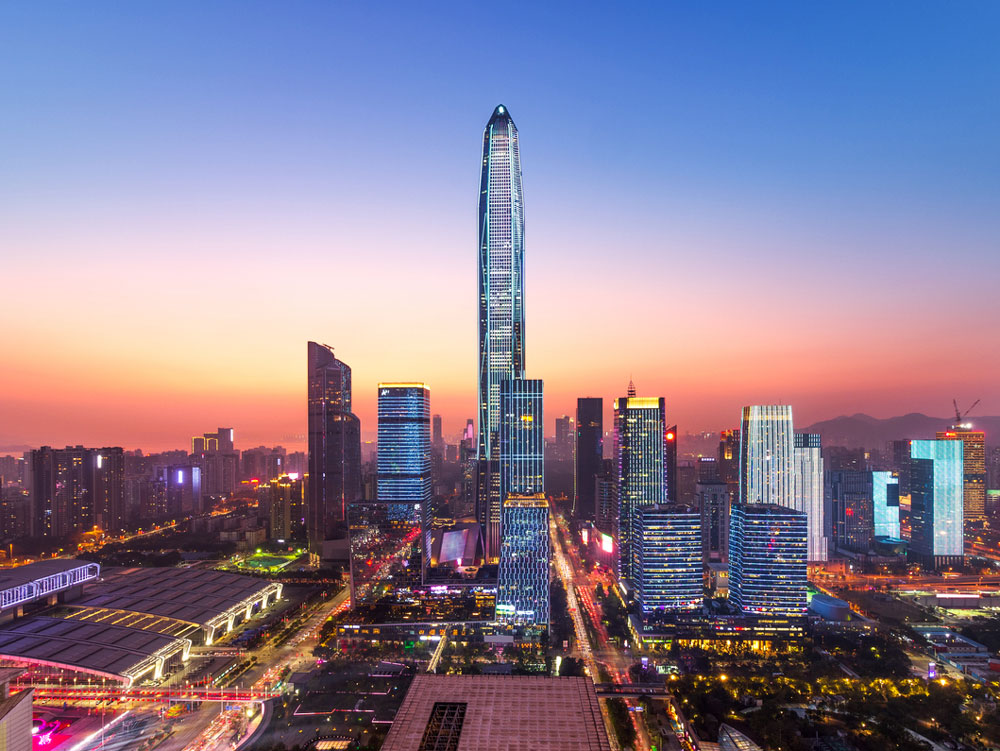
Following its completion in 2016, the Ping An Finance Center became the tallest skyscraper in Shenzhen. Its reinforced concrete and stainless steel structure soars 1,844 feet above the city’s Futian Central Business District. The tower is a symbol of the growth of Shenzhen — since the 1980s it has evolved from a town of 30,000 people to a megacity with a population of over 10 million. Much of the building is occupied by hotel, retail, and office spaces, namely the namesake Ping An Insurance group. The 116th-floor Freesky observation deck affords breathtaking views over the city, bay, and mountains of Shenzhen.
3. Makkah Royal Clock Tower – Mecca, Saudi Arabia
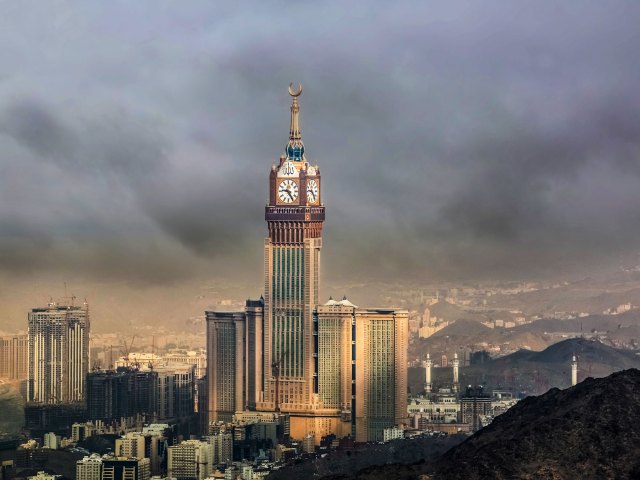
A stone’s throw away from Islam’s most sacred site is the Makkah Royal Clock Tower. The central feature of the King Abdulaziz Endowment Project, the world’s third-tallest building stands majestically at 1,972 feet while overlooking the Kaaba. The Makkah Royal Clock Tower is home to the luxury Fairmont Hotel, with rooms that feature views of the Great Mosque of Mecca. Atop the building are four clock faces, which are the biggest in the world. The Clock Tower Museum spreads across the upper four floors and has cosmology and science exhibits in addition to a balcony lookout.
2. Shanghai Tower – Shanghai, China
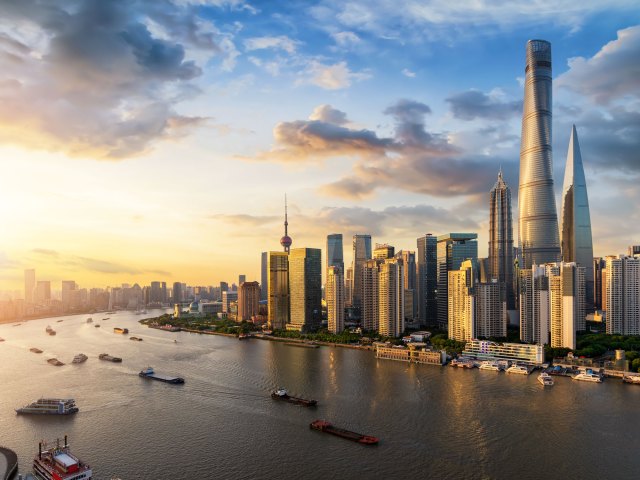
The imposing Shanghai Tower is a 2,073-foot-tall skyscraper that serves as a mixed office space and leisure and entertainment center. An iconic landmark of Shanghai’s Lujiazui financial district, it forms one part of a trio of supertall structures alongside the Jin Mao Tower and Shanghai World Financial Center. Shanghai Tower twists upwards in an ultra-modern helical shape and is coated with two layers of glass. It’s known for its energy efficiency and sustainability — the glass layers act as a natural cooling and ventilation system, and the building also has a system to collect rainwater and reuse wastewater. High-speed elevators whisk visitors up to observation decks situated on the 118th and 119th floors.
1. Burj Khalifa – Dubai, UAE
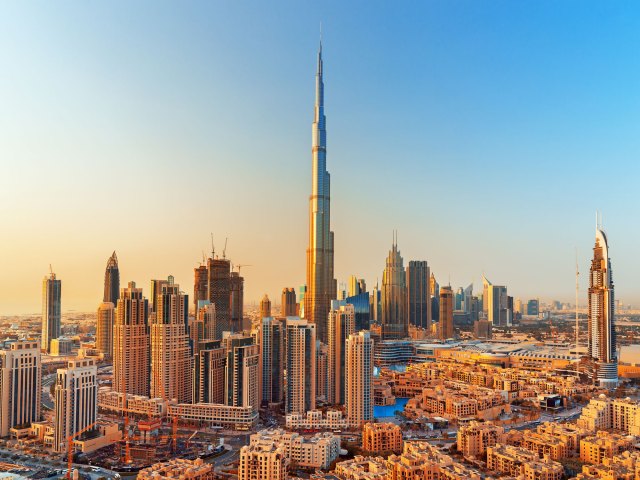
Tallest of the world’s supertall skyscrapers is Dubai’s Burj Khalifa. Ascending to a dizzying 2,716 feet, it beats its closest rival by almost 700 feet and claims seven world records. Among them are the world’s highest occupied floor and tallest service elevator. Around 380 engineers and technicians worked on this architectural wonder, and the construction process involved approximately 22 million hours of person-hours. Spread across the 160 floors are opulent residences, a hotel, bars, and more than a thousand pieces of artwork. The highlight on the 148th floor is At the Top, Burj Khalifa SKY — the highest observation deck on the planet.
Featured image credit: bingfengwu/ iStock






